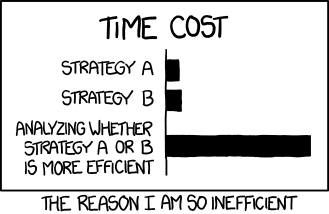By The Secret Facilitator
Facilitation is not easy, it is a balancing act of managing people and dealing with technology. Experience has taught me some of the pitfalls involved in facilitation that are easy to encounter if you haven’t dealt with them before. This article will set out some of the most common, and most frustrating issues you will probably encounter.
1. If anything can go wrong, it will.
This is the basic principle of Murphy’s Law
I’ve had firsthand experience with this inevitable law of nature; while running a simulation the unthinkable happened – a glitch crashed the whole simulation! Shock! Horror! A potentially catastrophic error that was no fault of my own. With a team of 8 people starting to get annoyed at the prospect of all their hard work gone I had to resolve the issue quickly.
Luckily, I was working with another facilitator who could keep all the other teams running while I helped the distraught team. We had asked the teams to record all their decisions on a piece of paper, so I was able to reset the simulation and quickly bring the team up to speed again – disaster averted by planning for failure.
This would have been impossible without another facilitator assisting me, they kept on top of the other teams while I focused on the glitch; without this the rest of the teams would have been sacrificed as my attention was elsewhere.
The vital point in this: perfection is never guaranteed – things will go wrong, you must be prepared to deal with it, a key part of that preparation is making sure that you only take on as much as you have the manpower for.

Don’t be like the dog in the comic, be prepared to act and act quickly.
2. Competition is good, conflict is not.
Facilitators must not let competitiveness sour the atmosphere of the simulation.
Players love competing, and some people are naturally competitive - this will lead to a more fun environment for the simulation to be played in. Competition adds stakes, risk and meaning to playing the simulation; encouraging players to really try their best. However, this is a double-edged sword, some people can get wrapped up in the competition and begin to act aggressively or unpleasantly - facilitators must keep an eye out for this and stop it as soon as possible.
This is exaggerated by any external factors in the simulations, perhaps different departments are competing, or as I have experienced different nationalities. This has the potential to destroy the fun atmosphere that a simulation provides. I have experienced a simulation involving large groups of varied nationalities - each speaking English and engaging in friendly competition, and it was at times difficult to maintain the amicable feeling in the room.
Douglas Adams, in The Hitchhiker’s Guide to the Galaxy, sums it up describing the language translating Babel fish:
"Meanwhile, the poor Babel fish, by effectively removing all barriers to communication between different races and cultures, has caused more and bloodier wars than anything else in the history of creation".
3. The facilitator holds ultimate responsibility for the success of the simulation
Facilitators should not forget this, the simulation, the players, and the environment they play in is their domain.
Responsibility extends beyond just making sure everyone knows the rules and the simulation is running. Facilitators must ensure that they are given appropriate resources, time and attention to keep the simulation functioning and ultimately deliver a good learning experience.
A well-planned simulation allows decisive responses to problems that might occur. Talking is not doing, and in a limited time situation decisive action is needed to ensure that the simulation runs on time. Indecision due to lack of preparation for the unexpected can force a simulation to be rushed or in the worst case not even started.

Credit XKCD: https://xkcd.com/1445/
This emphasis on planning is not without experience; while facilitating a simulation with around 70 people playing at once it became clear that there were no laptops provided by the company. This was a potential disaster; the group was split into 7 teams with each team needing its own laptop.
The day before the simulation I had to run around the venue trying to find laptops and managed to scrape together a ragtag collection of borrowed machines. This was far from optimal, some teams had small netbooks with 7-inch screens, while other teams had widescreen laptops that made other teams envious. This could have been avoided with some simple planning and thorough questioning.
To Conclude
- Anything that can go wrong will go wrong.
- Facilitators must make sure that conflicts do not break and disrupt the simulation.
- Prepare, prepare, prepare – there is no such thing as too prepared, ultimately facilitators are responsible for lack of preparation.
Good luck!
Jamie Thompson (The Secret Facilitator) is currently studying Computer Science at Queen's University Belfast.
LinkedIN: https://www.linkedin.com/in/jthomperoo/